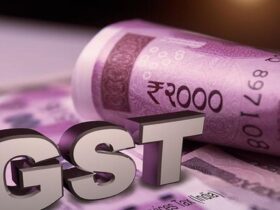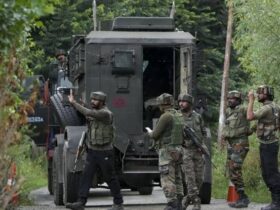Srinagar, May 25 (KNB): Armed Forces (Special Powers) Acts (AFSPA), are Acts of the Parliament of India that grant special powers to the Indian Armed Forces in what each act terms “disturbed areas”. According to The Disturbed Areas (Special Courts) Act, 1976 once declared ‘disturbed’, the area has to maintain status quo for a minimum of 3 months. One such Act passed on September 11, 1958 was applicable to the Naga Hills, then part of Assam. In the following decades it spread, one by one, to the other Seven Sister States in India’s northeast(at present it is in force in Assam, Nagaland, Manipur excluding Imphal municipal council area, Changlang, Longding and Tirap districts of Arunachal Pradesh). Another one passed in 1983 and applicable to Punjab and Chandigarh was withdrawn in 1997, roughly 14 years after it came to force. An Act passed in 1990 was applied to Jammu and Kashmir and has been in force since.
The Acts have received criticism from several sections for alleged concerns about human rights violations in the regions of its enforcement alleged to have happened.
Armed forces Special Powers Act (AFSPA) has in the past thirty years of Kashmir violence dominated the headlines, analysis and many heated discourses on media. Many of the opponents have stated Wherever the Indian army has found the nature of allegation having truth the guilty have been punished, but on the other side the number of allegations actually leveled against army and the number of them being true there exists a gap. For example in 1994 out of total 14 allegations against army only three were found to be true, while as in 2017 out of total 9 allegations 4 have already been found false and four are under investigation. In the year 1995 out of the total 15 allegations leveled against army, 12 were found false while in 2016 out of 7, a whopping six were false.Same pattern of high level of false allegations against army has dominated the things since 1990s.
In an important development with reference to it the Centre has revoked The Armed Forces (Special Powers) Act (AFSPA) from Meghalaya since April 1, a senior Home Ministry official told The Hindu on Monday. Earlier the AFSPA was effective in 20 km area along the Assam-Meghalaya border.
In Arunachal Pradesh, the impact of AFSPA was reduced to eight police stations instead of 16 police stations and in Tirap, Longding and Changlang districts bordering Assam.
A debate is on now that what can be done in the state of Jammu and Kashmir with reference to AFSPA as many local mainstream parties have called for its revocation as a confidence-building measure but harsh situation on the ground make AFSPA Imposition a necessity, according to its proponents.
Adil Ahmad, a political analyst stated – “The revocation of AFSPA demands peaceful atmosphere to unveil in Kashmir free of violence and mayhem. We have to bear in mind that each soldier of Army is under the solemn oath to protect the country’s territory, sovereignty & property. In doing so, while in disturbed areas, a great amount of control is exercised Army by property training the troops. Political upheavals, never-ending violence, and death cycle will make the view of state clear that AFSPA like acts is needed to save the situation from getting bad to worse. The realities of ground painfully enough have one writing on a wall that unless peace, tranquility, and amity does not unveil in Jammu and Kashmir to fullest and political uncertainties end we will have to bite the bullet of AFSPA.”
The reality of Kashmir signals there could be a long road ahead before we can finally envisage the revocation of AFSPA.



















Leave a Reply